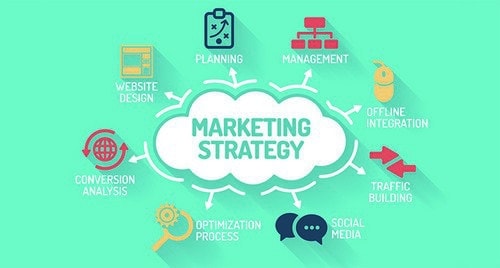In general, it is only the top management that makes a final decision regarding the implementation of a particular marketing strategy. However, in doing so, it might seek the opinion of the various departments in the organization. Now, whether or not to take this feedback into consideration is again entirely up to the top management.
In short, irrespective of the point of view of the other departments, the top management reserves the right to choose its own path as far as formulating a strategic marketing plan and its implementation is concerned.
Once the organization has decided on the marketing plan to be followed, it is now duty of the four organizational units involved in the marketing strategy to act on it in a timely manner. Let us now have a close look at these four organizational units that play an important role in implementing an organization’s marketing strategies.
Table of Contents
1) Corporate
This is the topmost entity (marketing) that makes the final call. It is the head of strategic planning department and acts as the path finder. All its decisions are final and binding. Also, in most cases, Corporate is the entity that has the final say as far as allocation of funds to particular divisions are concerned. During the allocation of the funds itself, the Corporate decides which marketing divisions will be playing a vital role in the implementation process and which may take a back seat.
2) Division
This entity takes the responsibility of implementing the strategic plan as well as achieving the organizational goals as discussed in the earlier phases. It is also responsible to divide and allocate the funds it has received from the corporate to the individual Strategic Business Units depending on their role in implementing the strategic plan. Division is also responsible for the overall performance of the SBU and is answerable to the Corporate for the same. Hence, Divisions should strive for the overall development of the individual strategic business units by guiding them appropriately when required.
3) Strategic Business Unit (SBU)
As understood from the above, SBU falls under the control of Division, and is responsible for managing various activities it has been handed over to take care of, such as accounting, sales, finances and marketing. It should be noted that multiple products may come under a single business unit and hence SBU’s responsibilities may vary from organization to organization. In small companies, persons holding important designations such as the regional sales manager or area sales manager may take the final decisions on behalf of the company as far as marketing a particular product is considered. Thus in small organizations, formulation and implementation of marketing strategy may involve less complexity.
4) Product
At the product level management, apart from accounting and finance sections, sales as well as distribution sections are also taken care of. Other important decisions such as the product pricing, marketing and launching costs, etc can be either decided by the individual strategic business units or at the Division level, as instructed by the Corporate. However, as mentioned earlier, the primary task of product level is to take care of sales and account related issues.
Conclusion
Thus, the above mentioned four organizational units join hands together in implementing the strategic marketing plan finalized by the top level management. All these units, by working in tandem and by complimenting each other at every stage of the implementation process, bring uniformity to the organizational goals and objectives. A point worth noting here is, though depending on the size of the organization, the number of levels involved in the implementation procedure may differ, the basic principles on which a strategic plan is formulated and then acted upon remains the same irrespective of the size of the organization.
Liked this post? Check out the complete series on Strategy
